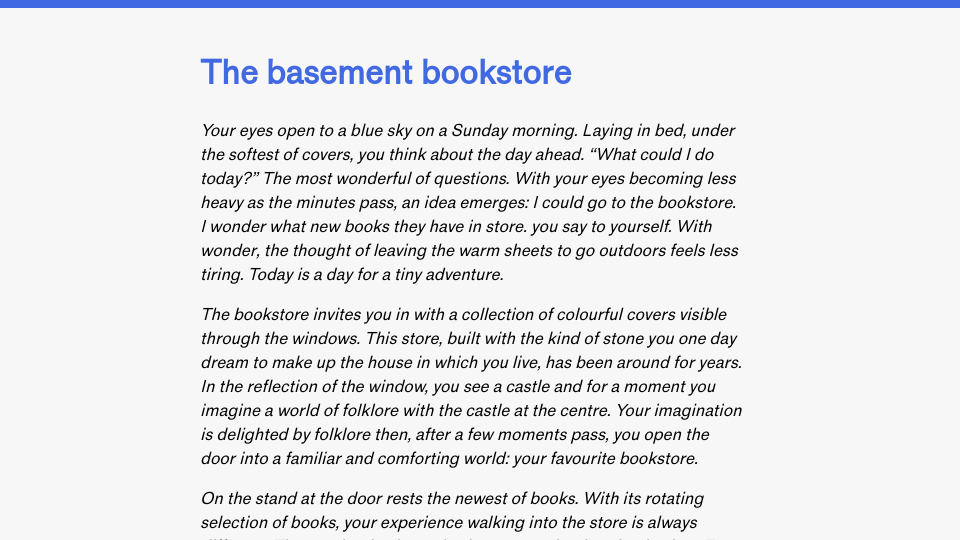In Let’s replace “user experience” with human experience, I posit that we should use “human experience” instead of “user experience,” the former expressing more directly the fact that we design software for people.
When I make this website, I like to follow my curiosities. With that said, I care deeply about the accessibility of the content on the page, and the usability of the site. I want my words to be as readable to as many people as possible. Equally, I want it to be easy for people to find what they are looking for on my website.
One feature that I have wanted to facilitate feedback on for a while is my search engine. I actively use it to find posts, but I was curious about how others used it. I know how to search for things on the search engine because I know what posts I have written. Thus, I needed others’ perspectives to help me know what I could do better to serve readers.
Before my discussions with friends who read my website, I thought that the primary problem was ranking – that the results were not relevant enough given a keyword. After sitting down and watching someone experience my software, I realised that this was not the problem. Indeed, when I asked a question about relevance, I got an affirmation that the relevance was good enough. Instead, there were other issues to address.
As I watched others’ use my software, I realised there were some things I skipped over as being acceptable, like the way that some document descriptions were subheadings instead of paragraphs. Pagination, a feature I seldom use, didn’t work as expected – there was an off-by-one error that caused inconsistent page links.
I also saw some features that I designed but do not use in action, such as how search as you type is disabled when someone has set a preference to reduce motion in their web browser.
Through my discussions, I learned that, on the whole, my search engine achieves its goals: to help people find documents. I still think there are improvements that can be made in relevance, but seeing people use my software brought attention to the fact there were other aspects of the experience that could be improved.
What I thought was a problem was not actually a problem for those I spoke with.
I realised that my uses were subtly different than readers’. Because I had more knowledge on the words used in specific posts, I noticed that some specific searches’ relevance could be slightly better.
With that said, one person with whom I spoke noted a key use was to find a recent blog post I had written that they had previously seen on my website. In that test, remembering few details of the post, the reader was able to find exactly for what they were looking for. The result for which the reader was looking was ranked #2 in the list, but that was good enough.
Indeed, as much as one tries to design an experience from theory and past experience and reference materials, there is no substitute to sitting someone down and facilitating feedback in pursuit of designing software that is as useful to as many people as possible.

